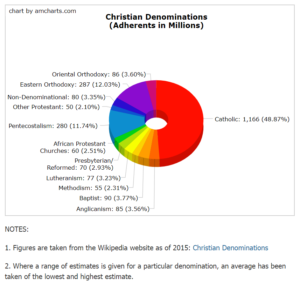Blogger Brian Hehn is the Director of The Center for Congregational Song.
VARIETY OF SONG
The United Methodist (UMC) organization “Discipleship Ministries” has just released a project that has been years in the making. As a denomination (like many mainline Protestant denominations in the U.S.), the variety of worship practices, music accompaniment styles, and song selection in the United Methodist Church is all over the map. For many genres that work well in printed song collections, the curation of hymns and songs has been handled through the creation of hymnals and hymnal supplements (The United Methodist Hymnal 1989, The Faith We Sing 2001, and Worship & Song 2011). For songs and genres that do not work as well on the printed page or that have been left out of those collections, however, there has been little guidance on which songs and hymns are best suited for congregational song in United Methodist worship services.
This situation is not unique to United Methodists, but is a broader issue that the majority of denominations find themselves in today.
BACKGROUND
A few years ago, a group of UMC musicians and theologians set out to “vet” the CCLI-Top 100 List in order to give UMC pastors and worship leaders guidance on which of those songs are well suited for United Methodist worship. After creating a rubric tool (found here) to use on each song in the top-100 list, the group published the results of that vetting process here: 2017 CCLI Top 100 Commended List January 2018.
THE PROJECT
After the completion of this first step and identifying some striking representation omissions and theological gaps in the CCLI Top-100 list, a new group was formed to bring the vetting project to begin working on creating another list called the “CCLI Top 100+ Beyond” project. The group and its work are described on the project’s homepage as…
…a diverse team of eleven United Methodist and pan-Methodist pastors, theologians, and contemporary worship practitioners who not only evaluated the latest CCLI Top 100 songs, but supplemented this list by evaluating and recommending other contemporary worship songs that more accurately reflect the richness of our United Methodist connection. This vetting team represents the diversity of our denomination; each member has a strong facility with contemporary congregational song (including Contemporary Praise and Worship Music, Contemporary Gospel Music, Global Song, and other genres/forms of contemporary song).
The project results were just released (Monday, March 8th, 2021) and can be found as two resources:
The first is the recommended song list of 89 songs from a variety of sources. Each song includes a YouTube link to a performance, a “key Wesleyan theological emphasis” found in the song, the song’s perspective (Personal, Personal & Corporate, or Corporate), a paragraph description of the song’s context, and finally links to additional arrangements of the song.
Click To Download The Song List
The second is a 14-page PDF entitled “toolbox for worship leaders” that includes short entries from the project team on topics such as the “History of The Project,” “Making Your Song Choices Contextual,” “Cultural Competence In Song Adaptation,” and more. While the project and this resource’s audience is certainly leaders within the United Methodist Church, worship leaders from any denomination should read it. The recommendations, insights, and practical advice contained within these fourteen pages are an excellent guide to thinking theologically, practically, and critically about congregational song.
Click To Download The Toolbox PDF
A CALL FOR OTHER GROUPS TO FOLLOW
This project is a great first step in helping to prayerfully, critically, and intentionally curate the church’s song that has largely been missing from printed publications over the past few decades. While I’m sure the results of the project will be scrutinized and criticized by many (hey, I’ve got my own thoughts on the list, but that’s not what this blog entry is about), the main point is this:
Discipleship Ministries has given us a viable model for how denominations and/or organizations can provide ongoing guidance to pastors, worship leaders, and church musicians on how to faithfully choose band-driven and electronically available congregational song. For the health of the church’s song repertoire and to enable disciples who are intentional in living out their faith, I believe it is now an imperative that the leaders of other denominations (and/or organizations that resource and support those denominations) follow suit with similar projects. I’m looking at you Lutherans, Presbyterians, Baptists, Roman Catholics, Anglicans, and more…




